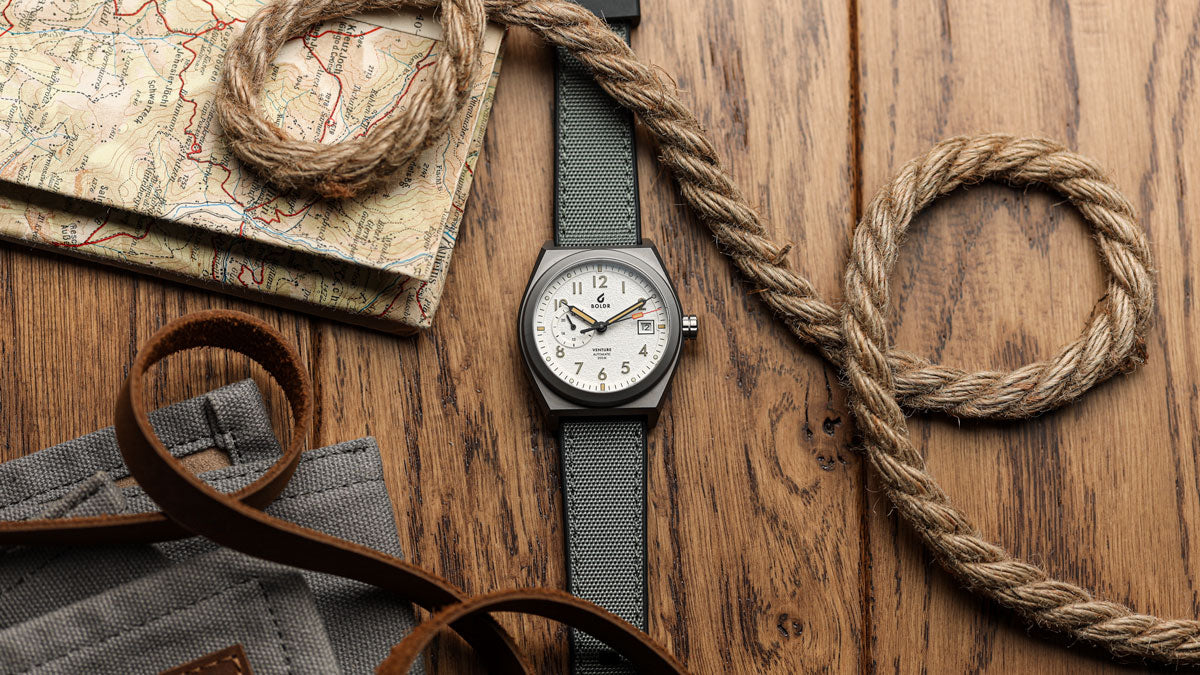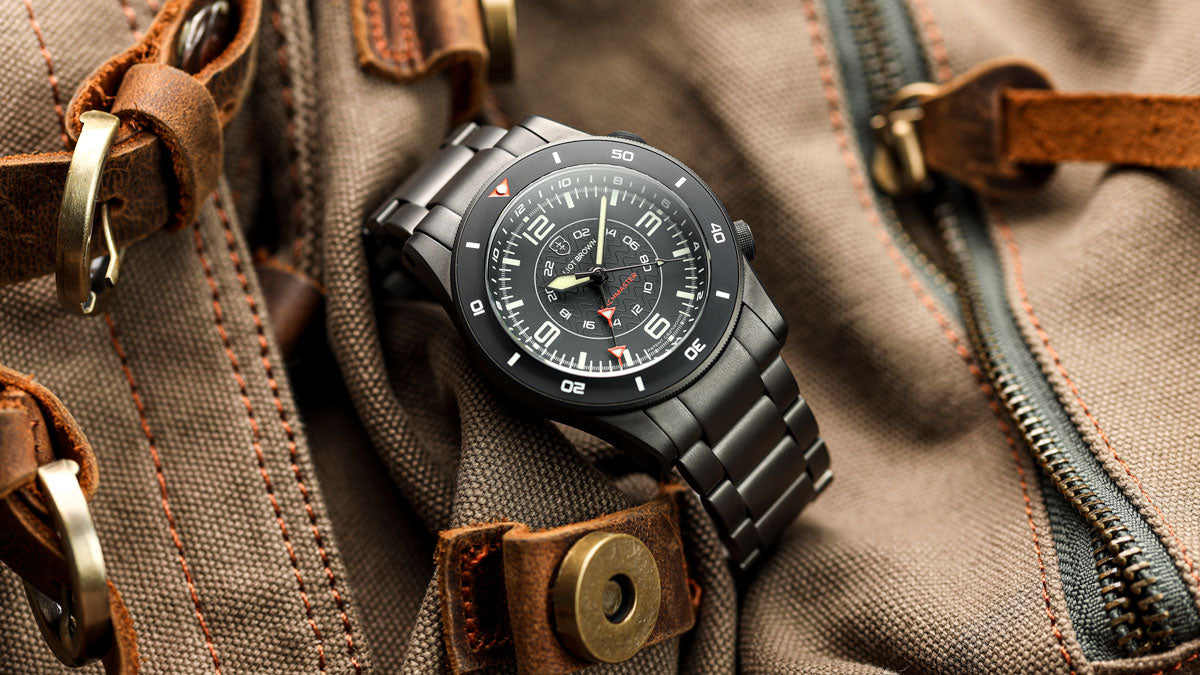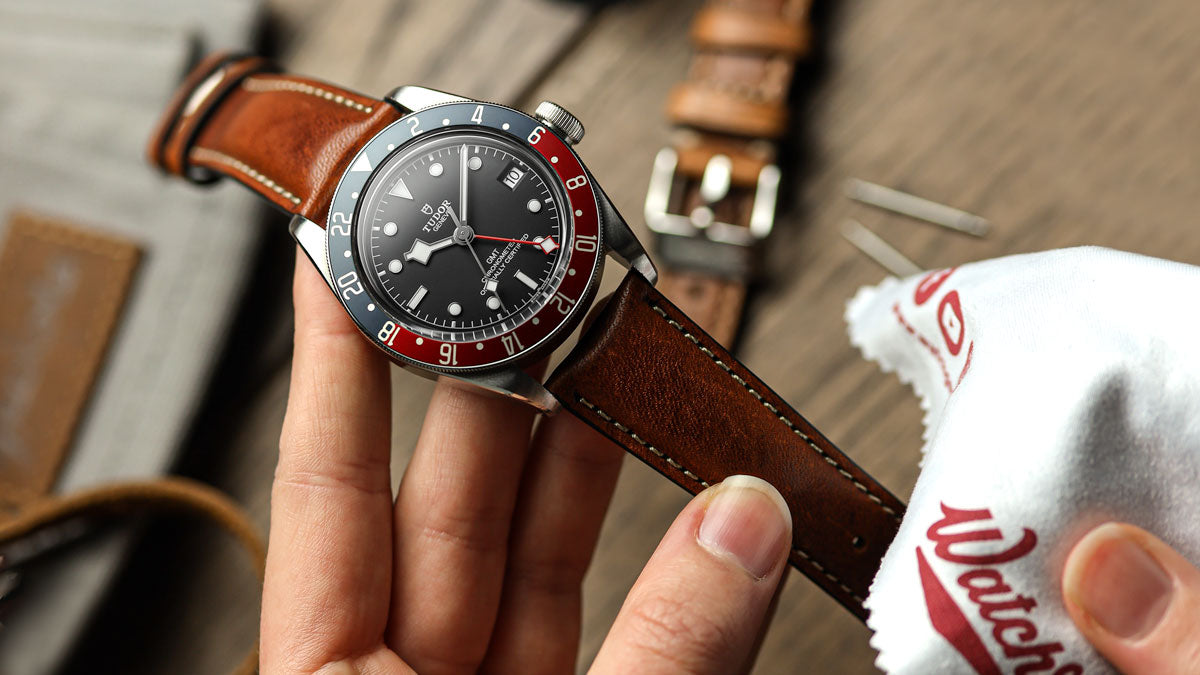The question of whether to choose a mechanical or quartz watch isn’t new, but it crops up consistently for watch enthusiasts. Do you want a timepiece with near-perfect accuracy (like a quartz), or do you favour the classic craftsmanship of a mechanical movement?
There’s no right or wrong answer, but I’m here to help you make the right decision for your watch collection. Before I compare the two, let’s clarify how each movement works.
 Boldr Venture on ZULUDIVER Endurance Extreme Rubber Watch Strap - Credit WatchGecko
Boldr Venture on ZULUDIVER Endurance Extreme Rubber Watch Strap - Credit WatchGecko
What is a mechanical watch?
A mechanical watch operates with a traditional and intricate system of gears and sprints. The beating heart of a mechanical watch is its mainspring, which can be wound in one of two ways:
- A manual watch, which requires regular hand-winding by turning the crown. This process transfers energy to the mainspring. which releases energy to the gears as it unwinds. This drives the hands of the watch.
- An automatic watch, which winds the watch through the motion of the wearer’s arm. The rotor spins as the watch moves, transferring energy to the mainspring and keeping the watch running.
You can find out more about automatic watches in this article.
What is a quartz watch?
A quartz watch uses an electronic movement powered by a quartz crystal. The crystal oscillates when electricity is released from the battery, which powers the integrated circuit. It ensures precise and consistent timekeeping.
Which should you add to your collection: Mechanical or quartz?
 Elliot Brown Beachmaster - Credit WatchGecko
Elliot Brown Beachmaster - Credit WatchGecko
There’s no right or wrong answer to this question. It’s a personal choice on which type of watch movement you prefer and the style of watch you want to add to your collection.
However, understanding the key differences between these watch movements can help you make an informed decision about which one to buy. So, let’s take a look at the main ways these movements differ.
Accuracy
If you’re looking for a movement with unparalleled accuracy, quartz movements are the way to go. Why? Because the crystal is shaped like a tuning fork, which resonates at a specific frequency (usually 32,768 times per second) when an electric current is applied. This consistent frequency
Because of this level of accuracy, quartz watches only lose or gain a few seconds each month. Mechanical watches, on the other hand, are typically accurate to within 5 seconds a day — which is still pretty accurate. It’s just that quartz watches have the edge, and they require less maintenance to remain accurate over longer periods.
Speaking of maintenance, let’s talk about caring for quartz and mechanical watches.
Maintenance
 Watch Cleaning - Credit WatchGecko
Watch Cleaning - Credit WatchGecko
Mechanical watches typically require more maintenance. They have more moving parts, increasing the likelihood of wear and the need for periodic adjustments. Regular servicing is recommended every three to five years, which involves disassembling the movement, cleaning, lubricating, and adjusting all the components.
Plus, if you’re using a manual mechanical watch, you’ll need to hand-wind the watch every day or two (although specific times vary depending on the model).
With electronic components, quartz movements require less maintenance. Battery replacement is usually the primary concern, which needs to be done every few years. If you’re looking for a reliable and hassle-free timekeeping experience, quartz is the ideal option.
Craftsmanship
So far, I’ve talked a lot about how quartz watches might be the better choice. And it’s true — there are a lot of reasons a quartz movement is great. But the main reason watch lovers are drawn to mechanical watches instead of quartz is the quality of craftsmanship.
For me, mechanical timepieces represent the art of watchmaking. The intricate movements are a testament to the dedication of skilled watchmakers, keeping the rich history alive (which dates back to the 16th century). And they’re often being assembled by hand, which really demonstrates the precision and attention to detail of to-quality mechanical watches.
However, craftsmanship comes at a cost. Mechanical watches are more expensive than quartz models, so you need to weigh up your priorities. This might help with your decision:
- If you’re looking for an accurate, reasonably-priced watch with minimal maintenance, a quartz model fits the bill.
- If you want an intricate timepiece that demonstrates the skill of watchmaking, a mechanical movement should be top of your list.
What would you choose?
Do you have your own take on whether a mechanical or quartz watch is the better option? Let me know in the comments below.





